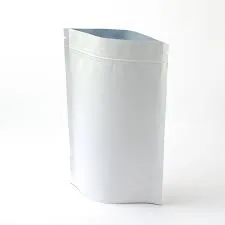- Afrikaans
- Albanian
- Amharic
- Arabic
- Armenian
- Azerbaijani
- Basque
- Belarusian
- Bengali
- Bosnian
- Bulgarian
- Catalan
- Cebuano
- chinese_simplified
- chinese_traditional
- Corsican
- Croatian
- Czech
- Danish
- Dutch
- English
- Esperanto
- Estonian
- Finnish
- French
- Frisian
- Galician
- Georgian
- German
- Greek
- Gujarati
- haitian_creole
- hausa
- hawaiian
- Hebrew
- Hindi
- Miao
- Hungarian
- Icelandic
- igbo
- Indonesian
- irish
- Italian
- Japanese
- Javanese
- Kannada
- kazakh
- Khmer
- Rwandese
- Korean
- Kurdish
- Kyrgyz
- Lao
- Latin
- Latvian
- Lithuanian
- Luxembourgish
- Macedonian
- Malgashi
- Malay
- Malayalam
- Maltese
- Maori
- Marathi
- Mongolian
- Myanmar
- Nepali
- Norwegian
- Norwegian
- Occitan
- Pashto
- Persian
- Polish
- Portuguese
- Punjabi
- Romanian
- Russian
- Samoan
- scottish-gaelic
- Serbian
- Sesotho
- Shona
- Sindhi
- Sinhala
- Slovak
- Slovenian
- Somali
- Spanish
- Sundanese
- Swahili
- Swedish
- Tagalog
- Tajik
- Tamil
- Tatar
- Telugu
- Thai
- Turkish
- Turkmen
- Ukrainian
- Urdu
- Uighur
- Uzbek
- Vietnamese
- Welsh
- Bantu
- Yiddish
- Yoruba
- Zulu
Understanding the Benefits and Applications of Ultraviolet Coating Technologies
Understanding Ultraviolet Coating Applications and Benefits
Ultraviolet (UV) coating is a specialized finishing process that involves the application of a liquid resin that is cured using ultraviolet light. This technology has gained significant traction in various industries due to its remarkable properties and wide range of applications. This article explores the intricacies of UV coating, its advantages, and its applications across different sectors.
What is UV Coating?
UV coating involves the application of a liquid coating that is cured by ultraviolet light. The process typically begins with the application of the liquid coating to a substrate, which can be paper, plastic, wood, or metal. Once applied, the coated surface is exposed to UV light, triggering a chemical reaction that causes the coating to harden almost instantly. This rapid curing process creates a tough, durable finish that is resistant to abrasions, chemicals, and in some cases, ultraviolet radiation.
The Advantages of UV Coating
1. Speed and Efficiency One of the most significant benefits of UV coating is the speed at which it cures. The quick curing time allows for faster production cycles, which can significantly boost productivity in manufacturing processes. Businesses can streamline their operations and increase output without compromising on quality.
2. Durability UV coatings provide a robust protective layer. After curing, the finish is resistant to scratches, scuffs, and chemicals, making it ideal for products that experience frequent handling or exposure to harsh environments. This durability results in a longer lifespan for the coated materials, reducing the need for frequent replacements or repairs.
3. Enhanced Aesthetics UV coatings can enhance the visual appeal of products. They can be produced in a variety of finishes, including glossy, matte, and textured, allowing for creative flexibility in design. Additionally, the coatings improve color saturation and clarity, resulting in vibrant and appealing visuals.
4. Environmental Advantages Because UV coatings do not contain solvents, they are considered more environmentally friendly compared to traditional coatings. They result in lower volatile organic compound (VOC) emissions, contributing to a healthier work environment and reduced environmental impact.
ultraviolet coating

5. Versatility UV coating is highly versatile and can be applied to a wide range of materials. This adaptability makes it suitable for various applications, from printing and packaging to woodworking and metal finishing.
Applications of UV Coating
1. Printing In the printing industry, UV coating is used to enhance the finish of printed materials. It is commonly applied to business cards, brochures, and packaging to provide a protective layer that also improves aesthetic appeal.
2. Furniture and Wood Products UV coatings are widely used in the woodworking industry to protect furniture and cabinetry. The coatings provide a durable finish that resists scratches and wear while maintaining the natural beauty of the wood.
3. Electronics In the electronics sector, UV coatings are employed to protect surfaces from dust, chemicals, and light exposure. This is especially important for devices that are regularly handled, as a UV-coated surface can improve both functionality and lifespan.
4. Automotive The automotive industry utilizes UV coatings for various components, including dashboards and exterior trims. These coatings offer resilience against UV radiation and environmental conditions, ensuring longevity and maintaining aesthetic appeal.
5. Cosmetics Packaging In the cosmetics industry, UV coatings are applied to packaging to enhance its visual appeal while providing a protective barrier. This is crucial for maintaining product integrity and extending shelf life.
Conclusion
Ultraviolet coating represents a modern solution for enhancing the durability and appearance of a wide array of products. Its rapid curing process, resilience, and environmental advantages make it a preferred choice in numerous industries. As technology advances and industries evolve, the applications of UV coating are likely to expand, offering innovative solutions for manufacturers and consumers alike. By understanding the benefits and potential of UV coating, businesses can better position themselves in a competitive market, ensuring that their products not only meet but exceed customer expectations.













